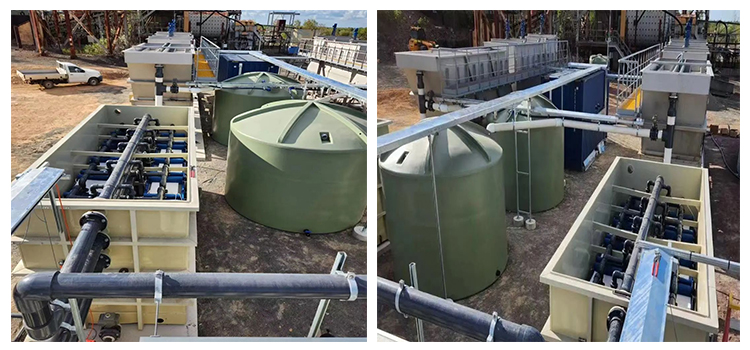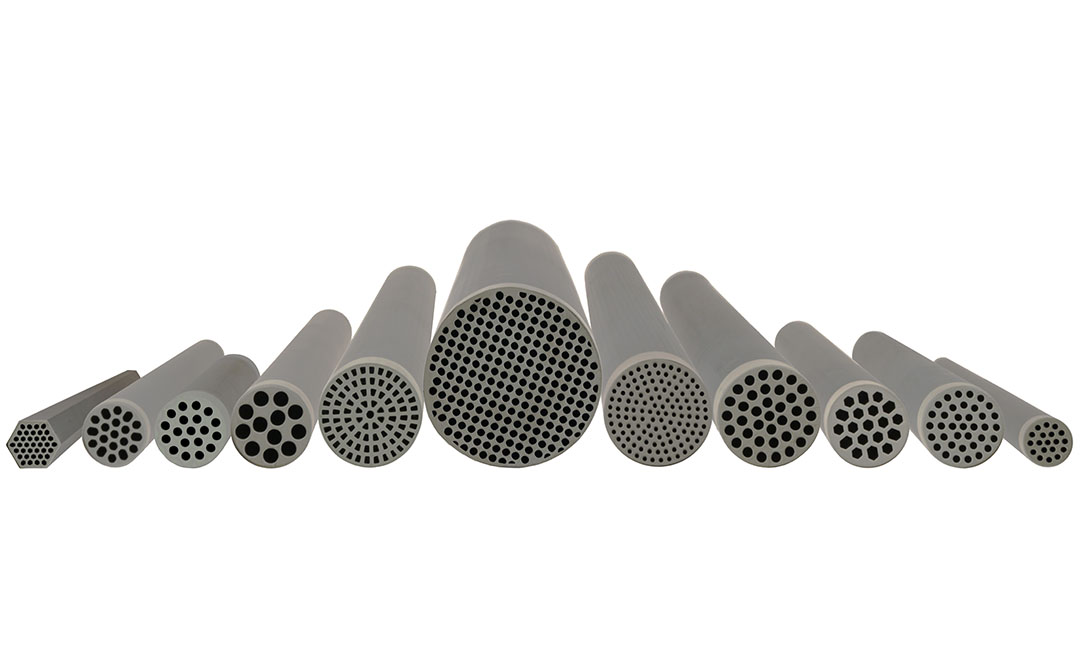Benefits of SiC Membrane Filtration Systems in Reducing Water Usage
Silicon carbide (SiC) membrane filtration systems have emerged as a sustainable solution for industries looking to reduce their water usage and environmental impact. These advanced filtration systems offer numerous benefits that not only improve the efficiency of industrial processes but also contribute to the conservation of water resources.

One of the key advantages of SiC membrane filtration systems is their ability to significantly reduce water usage in industrial operations. Traditional filtration methods often require large volumes of water to achieve the desired level of filtration, leading to high water consumption and wastage. In contrast, SiC membranes are highly efficient in removing contaminants from water streams, allowing for the reuse and recycling of water within industrial processes.
By implementing SiC membrane filtration systems, industries can minimize their reliance on freshwater sources and reduce the amount of wastewater generated during production. This not only helps to conserve water resources but also lowers the overall environmental footprint of industrial activities. In addition, the use of SiC membranes can help industries comply with stringent regulations regarding water usage and discharge, ensuring sustainable and responsible operations.
Furthermore, SiC membrane filtration systems offer superior performance and durability compared to conventional filtration technologies. The unique properties of SiC membranes, such as high chemical and thermal resistance, make them ideal for handling a wide range of industrial applications. These membranes are capable of withstanding harsh operating conditions and maintaining their filtration efficiency over extended periods, resulting in lower maintenance costs and longer service life.

The robust nature of SiC membranes also allows for continuous operation without the need for frequent replacement or cleaning, further enhancing the efficiency and reliability of industrial processes. This not only reduces downtime and operational disruptions but also improves the overall productivity and profitability of businesses. In addition, the high flux rates and low fouling tendencies of SiC membranes contribute to energy savings and operational cost reductions, making them a cost-effective solution for industries seeking to optimize their filtration processes.
Moreover, SiC membrane filtration systems offer a sustainable and eco-friendly alternative to traditional filtration methods. The use of SiC membranes eliminates the need for chemical additives or pre-treatment processes, reducing the environmental impact of industrial operations. This eco-friendly approach aligns with the growing emphasis on sustainability and corporate social responsibility, allowing industries to demonstrate their commitment to environmental stewardship and resource conservation.
In conclusion, SiC membrane filtration systems play a crucial role in driving sustainability in industries by reducing water usage, improving operational efficiency, and minimizing environmental impact. These advanced filtration systems offer a range of benefits that contribute to the overall sustainability and competitiveness of businesses. By investing in SiC membrane technology, industries can achieve significant cost savings, regulatory compliance, and environmental stewardship, positioning themselves as leaders in sustainable and responsible manufacturing practices.
Impact of SiC Membrane Filtration Systems on Energy Efficiency in Industrial Processes
Silicon carbide (SiC) membrane filtration systems have emerged as a sustainable solution for industries looking to improve their energy efficiency and reduce their environmental impact. These advanced filtration systems offer a range of benefits that make them an attractive option for a wide variety of industrial processes.
One of the key advantages of SiC membrane filtration systems is their high energy efficiency. Traditional filtration systems often require a significant amount of energy to operate, leading to high operating costs and increased carbon emissions. In contrast, SiC membrane filtration systems are designed to be highly energy-efficient, using less power to achieve the same level of filtration performance. This not only helps to reduce energy consumption and lower operating costs but also contributes to a reduction in greenhouse gas emissions, making these systems a more sustainable choice for industries looking to minimize their environmental impact.
In addition to their energy efficiency, SiC membrane filtration systems also offer superior performance compared to traditional filtration systems. The unique properties of SiC membranes, such as their high chemical and thermal stability, make them highly resistant to fouling and corrosion, resulting in longer membrane life and lower maintenance costs. This improved durability and reliability translate to higher operational efficiency and reduced downtime, further enhancing the overall sustainability of industrial processes.
Furthermore, SiC membrane filtration systems are capable of achieving a high level of filtration efficiency, removing a wide range of contaminants from industrial wastewater and process streams. This not only helps to ensure compliance with regulatory standards but also allows industries to recover valuable resources from their wastewater, such as clean water, chemicals, and nutrients. By maximizing the recovery and reuse of resources, SiC membrane filtration systems help to reduce the overall environmental impact of industrial processes and promote a more circular economy.
Another important aspect of SiC membrane filtration systems is their versatility and scalability. These systems can be customized to meet the specific needs of different industries and applications, from water treatment and desalination to food and beverage processing and pharmaceutical manufacturing. Whether used for pre-treatment, polishing, or concentration, SiC membrane filtration systems offer a flexible and cost-effective solution for a wide range of industrial processes.
Overall, the adoption of SiC membrane filtration systems can have a significant positive impact on the sustainability of industries. By improving energy efficiency, reducing operating costs, enhancing performance, and promoting resource recovery, these advanced filtration systems help to drive environmental stewardship and support the transition towards a more sustainable future. As industries continue to prioritize sustainability and seek innovative solutions to reduce their environmental footprint, SiC membrane filtration systems are poised to play a key role in driving positive change and promoting a more sustainable approach to industrial processes.
Case Studies Demonstrating the Environmental and Economic Advantages of SiC Membrane Filtration Systems
SiC membrane filtration systems have emerged as a sustainable solution for industries looking to reduce their environmental impact and improve operational efficiency. These systems utilize silicon carbide membranes, which offer superior performance and durability compared to traditional filtration methods. In this article, we will explore several case studies that demonstrate the environmental and economic advantages of SiC membrane filtration systems in various industries.
One industry that has benefited greatly from the adoption of SiC membrane filtration systems is the food and beverage sector. A case study conducted at a dairy processing plant found that by replacing their conventional filtration system with SiC membranes, the plant was able to achieve a significant reduction in water usage and wastewater generation. This not only helped the plant comply with stringent environmental regulations but also resulted in substantial cost savings due to lower water and energy consumption.
In the pharmaceutical industry, SiC membrane filtration systems have been instrumental in improving product quality and reducing production costs. A pharmaceutical company that implemented SiC membranes in their manufacturing process reported a decrease in product defects and a higher yield of high-quality products. This not only enhanced the company’s reputation for producing top-notch pharmaceuticals but also led to increased profitability through reduced waste and improved efficiency.
Another industry that has seen the benefits of SiC membrane filtration systems is the oil and gas sector. A case study conducted at an offshore oil rig showed that by using SiC membranes for water treatment and desalination, the rig was able to significantly reduce its environmental footprint by minimizing the discharge of harmful chemicals and pollutants into the ocean. This not only helped the company meet strict environmental regulations but also improved the overall sustainability of their operations.
In the textile industry, SiC membrane filtration systems have been instrumental in reducing water consumption and improving the quality of wastewater treatment. A textile manufacturing plant that implemented SiC membranes in their dyeing process reported a substantial decrease in water usage and wastewater generation. This not only helped the plant reduce its environmental impact but also resulted in cost savings through lower water and energy consumption.
Overall, the case studies presented here demonstrate the significant environmental and economic advantages of SiC membrane filtration systems in various industries. By adopting these innovative filtration systems, companies can not only reduce their environmental footprint but also improve operational efficiency and profitability. As industries continue to face increasing pressure to operate sustainably, SiC membrane filtration systems offer a viable solution for achieving these goals. With their superior performance and durability, SiC membranes are poised to drive sustainability in industries for years to come.

